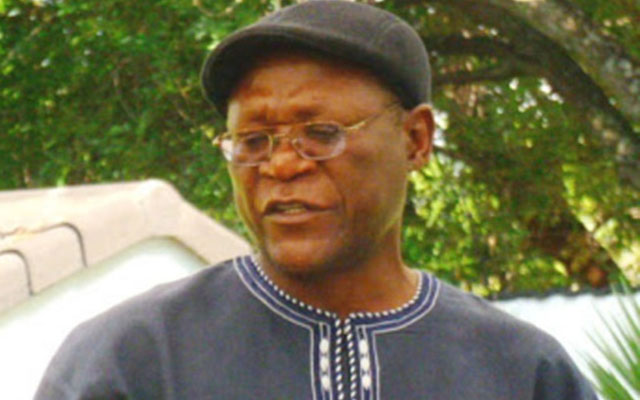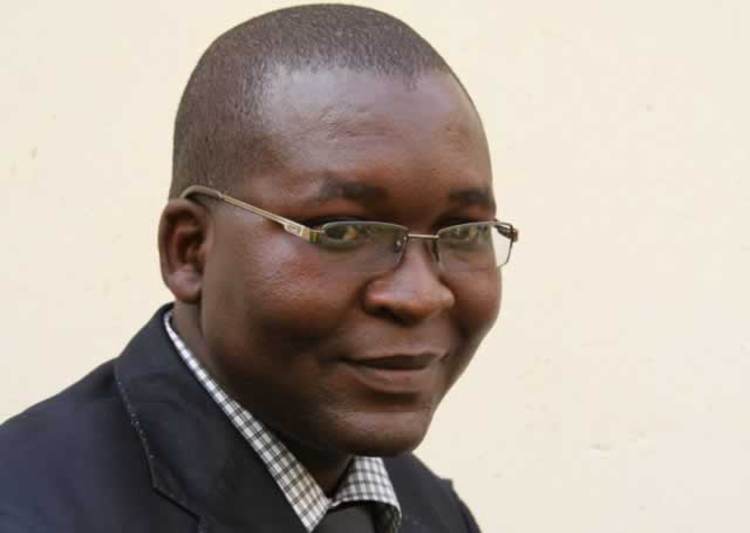How good when brothers dwell in unity

David Mungoshi Shelling the Nuts
True life, the best teacher, is an instructive paradox. While we live on Mother Earth, we continue willy-nilly to experience and even celebrate what the erudite Professor Jonathan Moyo, Honourable MP and Minister of Higher and Tertiary Education, Science and Technology Development, would in his eloquence call “our oxymoronic existence”.
Honourable MP for Kuwadzana, Advocate Nelson Chamisa too, that affable young man who likes getting into knotty but entertaining verbal bouts with VP Mnangagwa in Parliament, would probably concoct a similar turn of phrase! Just in case “oxymoron”; that exotic word, bamboozles you, let me try explaining it.
Sometimes people say, “The difference is the same” or say something about “the same difference”. When they do that, they are in fact, using oxymoron. So we can say an oxymoron is an utterance where words with different meanings are used in close proximity.
When something is “falsely true” we are talking oxymoron. Looked at this way, the oxymoron becomes a metaphor of life, a compressed kind of parable used to capture life and express its various shades of meaning. Put another way the oxymoron is a tale of opposites. Throughout life, we go through contradictory experiences and emotions.
Sometimes we are happy and sometimes we are sad. We laugh and we cry in turn as the occasion may demand. The same fuming man in one moment can suddenly become all tender and mellow in the next moment.
A woman may be a tigress in one moment and a doting mother the next. Such is life and such is the way of all flesh: metamorphosis or in simple terms — change, that unyielding imperative.
Boys grow into men and girls grow into women and so on and so forth. Everything is seasonal and the secret is to be in harmony with the seasons.
In Psalm 133 at verse 1, David, the psalmist, writes, “Behold, how good and pleasant it is when brothers dwell in unity!” (English Standard version).
This is something that all of us will experience many times over while we live.
And we probably have quite a few treasured moments from our catalogue of experiences. Memories are made of pleasant recollections of things from a past time.
For example, I have this picture on my mind: it is Christmas Day out there in the rural areas, a long time ago. It is of course school holidays and we have all gone “home” so to speak (kumusha/ekhaya).
The system had, of course, made it politically correct for “Africans” to always think that for them home was somewhere out there in the undeveloped back of beyond with the mosquitoes and the tsetse flies.
So it was that whenever the black workers were off work for at least several days, they bought a few groceries, boarded their buses and disappeared into the countryside to be with close family and friends.
One Boxing Day, my father was with us at our humble country residence which, however, must have been his castle, because here nobody could call him “boy”.
Here he was the main man as we say these days. My mother was an accomplished brewer and her brews never went off the mark.
Besides, she was a very clean woman, conscious of hygiene, cleanliness and aesthetics (beauty in simple terms). People called her “VaTsanana” — the clean one.
So you hardly ever saw any dead flies or cockroaches caught in the froth of her beer.
For that reason, whenever invitations went out to people to gather at our place for a drink, the village or “bhuku” came buzzing in and there was vibrant life in our home throughout the day.
Even that shaking man with a small tin to catch the slimy saliva that was always dripping from his diseased mouth was also there,
In the other hand, he always had his mug into which most guzzlers quickly poured generous portions of the home-made brew into his reservoir to make him go away and sit by himself somewhere to commiserate with his beer.
The comical “evangelist” was also there and as usual did his mimicry of Anglican priests celebrating mass.
Lustfully he sang in his satirical Gregorian chant:
Since you’ve decided not grow rice this season
How will you get by come next year?
You used to say Mary has lovely dresses.
How is it then that I saw here dressed in rags?
The unlikely response to this irreverent performance was a loud, discordant “Amen!”
The music scaled up to crescendo level, the dance became really heated, and Bamnini Patterson, a younger brother of my father’s, announced his arrival with a rendition of his favourite song about how goats never failed to amaze him: the female has a beard and the male has a beard!
With lots of gusto, he stamped hard on the floor with his brand new shoe from Sinoia Street in Salisbury.
It really was a wonder when he danced. Thomas Mapfumo could have learned a thing or two from Bamnini Patterson about how to do the shangara.
I have this feeling that the shangara must have been the prototype of tap dancing, just as tsaba-tsaba must have led to Chubby Checker’s twist. Babsy Mlangeni, the unsighted but gifted musician from South Africa, was not being flippant when he sang, “Music, was born in Africa”.
The earthen floor of my mother’s kitchen turned to dust after Bamnini Patterson was through with it.
My mother ululated when I thought she would have been screaming mad. To borrow a word from old-time Form Four debates, I was utterly “flabbergasted”.
To me at the time, these adults were a puzzle and if you tried going into their world, you found yourself in a maze of sorts, lost and confused.
All in all, it was a very lovely day and it felt very good to be alive. It is only now that I understand that all this homeliness, camaraderie and bonhomie can be classified as social capital.
What Bob Marley said about some people being so poor because all they have is money, takes on a much stronger meaning when looked at in the context of occasions such as the ones I have just described here.
I thought about the beauty of togetherness, art and harmony this last Wednesday when Bhabhu Books launched my book of poems, “Live Like an Artist”, at the National Gallery’s Sanctuary Café in Harare.
The greybeards of Zimbabwean literature were in attendance: Professor Kizito Muchemwa, Musaemura Zimunya, Stephen Chifunyise, Ignatius Mabasa, Memory Chirere, Tinashe Muchuri and others, including my friends from academia, former colleagues at the University of Zimbabwe.
And the younger ones too were there. Batsirai Chigama, a vibrant spoken word artistes read us a poem from the collection. And Aaah, it all felt so good!
Although food and drink always add value to such occasions, we still had a wonderful time although we didn’t have food and drink in abundance.
We had just enough to make the occasion a proper celebration.
The goodwill was overwhelming, the atmosphere was electrifying but relaxed nevertheless, and it felt good being the reason for what was going on.
And the duo of avant garde young musician Brezhnev on mbira and the young lady on violin gave the occasion a decidedly arty feeling.
I couldn’t help feeling expansive; it was my day to shine, as Pastor Chris, the Nigerian clergyman who can make a whole congregation fall and be almost senseless with just a gentle wave of his arm in its direction, would say.
Even though in Samuel Beckett’s “Waiting for Godot”, Estragon practically knocks Vladimir to the ground simply by calling him a critic, we artistes need critics the same way we need the air that we breathe.
In true Thomas Mapfumo fashion as expressed in his “Congress” song: kana tsuro ngaauye, kana gudo ngaauye…congress, everyone was welcome, critics included including the latest addition to that important clique, a young man who does not seem to know that he needs to have actually read a text thoroughly before pronouncing his earth-shaking movements, whatever they might be.
Now that the launch is come and gone, I remember with fondness trying to locate a “Twelve Bar Blues Story”, one of the 100 poems in the collection and making a mess of it because I couldn’t remember the page it was on.
Much to my surprise, a brother of mine in the audience who in his other life was an accountant, shouted calmly from his table, “Page 74!” He actually had read the book.
When earlier on he had called me on the phone to tell me that he was enjoying the poems, I had thought that he was just being polite, but I was wrong. It was indeed good and pleasant when brethren were joyous together.
- David Mungoshi recently launched his poetry book “Live Like an Artist” in Harare.












Comments